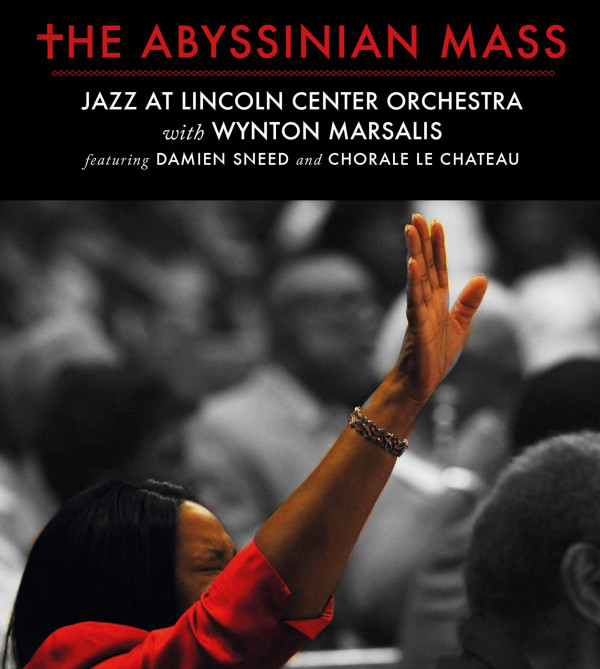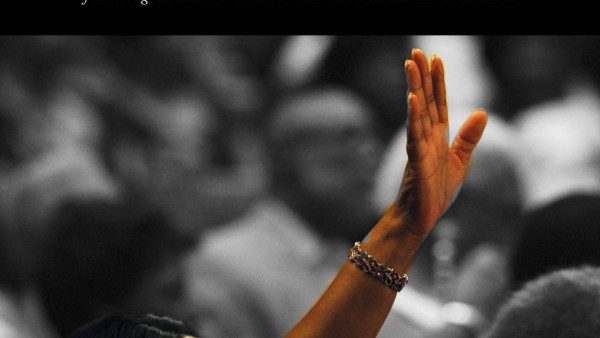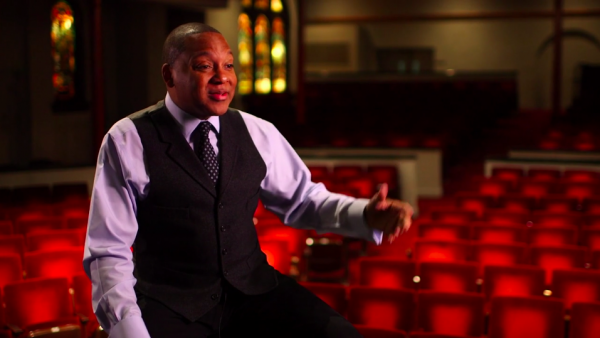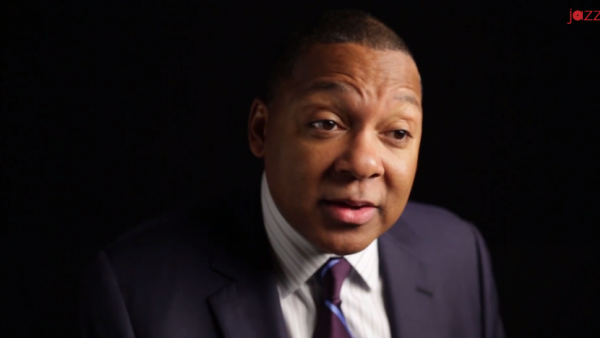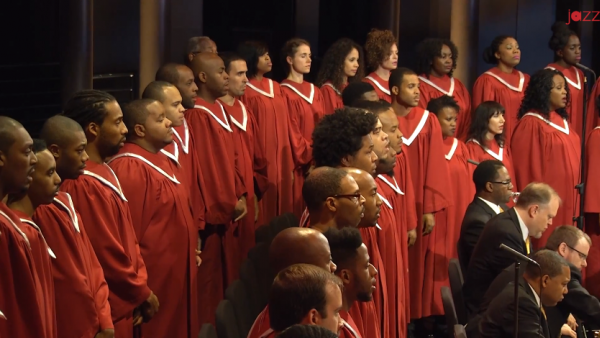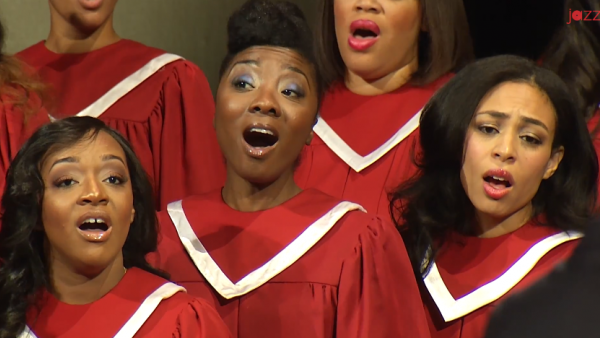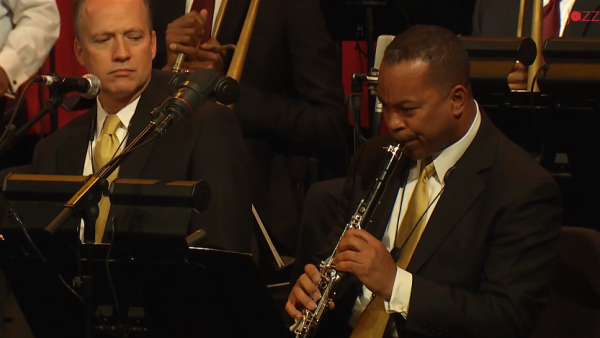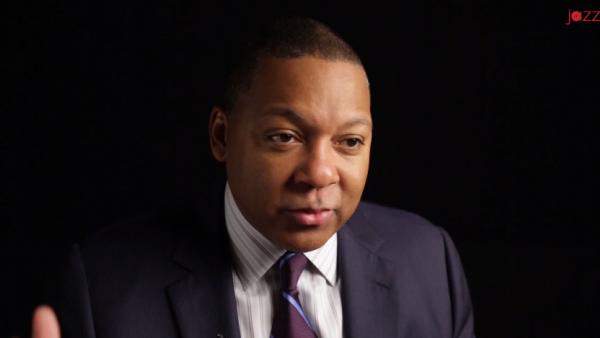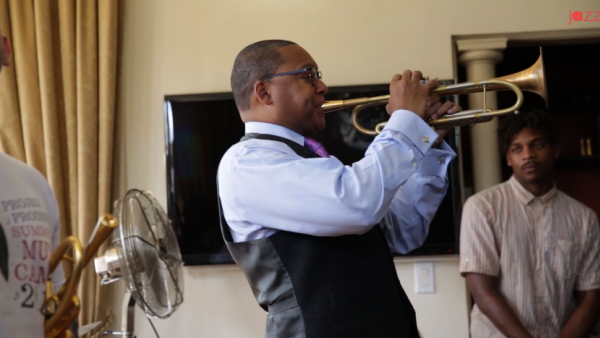Wynton Marsalis gives spirited take on jazz with ‘Abyssinian Mass’
Wynton Marsalis is onto something big. Again.
The composer, trumpeter, bandleader, and all-around high priest among contemporary jazz advocates is accustomed to working on a large scale — in terms of compositional scope as well as ensemble size.
But his latest project is, by some measures, his biggest yet. For “Abyssinian Mass” he’s summoned the largest ensemble he’s ever taken on the road, performing a sweeping composition that seeks to offer spiritual sustenance while fusing the tradition of African-American sacred music with a panoply of jazz styles.
Marsalis says the piece reflects the influence of growing up with the music of the Baptist church, but it’s meant to speak across cultures.
“The theme of the Mass is that everyone has a place in the house of God. We’re the most integrated nation ever, at least in the modern world that we know about. For our music to be, we have an identity but that identity is already universal,” Marsalis says in a phone interview from the road. “I try to find the core values that are so fundamental that they transcend ethnic identity. That doesn’t mean I run from it. I embrace African-American culture and I love it and embrace it, but it is a part of a human identity. So I’m always trying to make a larger human statement.”
At nearly 2½ hours long, “Abyssinian Mass” is Marsalis’s setting of a traditional Baptist service, infused with a glossary of jazz styles ranging from big band panache to steamy hard bop. For the current tour, which concludes at Symphony Hall on Sunday, Marsalis’s 15-member Jazz at Lincoln Center Orchestra is reinforced by Chorale Le Chateau, a 70-voice choir conducted by Grammy-nominated gospel musician Damien Sneed.
The tour includes 19 performances at venues ranging from the Kennedy Center to Yale University to the Good Shepherd Baptist Church in Augusta, Ga., with a four-bus caravan transporting the musicians. It’s costing a reported $2 million to mount.
“The music is not just gospel and it’s not just jazz, There’s lot of elements of classical music in the instrumentations for jazz orchestra and the ways the singers have to execute their parts,” says Sneed, whose work on the choral component began before the work’s 2008 debut as a commission in honor of the 200th anniversary of Harlem’s Abyssinian Baptist Church. It made its European debut last year at London’s Barbican Theatre.
Though Marsalis has famously — and not without controversy — led the charge to bring jazz from the nightclub to the concert hall, the music’s cultural profile is still associated more with Saturday night than with Sunday morning. But the hip, cosmopolitan genre shares a common wellspring with African-American sacred music. “There’s been a relationship between jazz, blues, and the church from the beginning,” observes Eric Gould, chair of the jazz composition department at Berklee College of Music. Gould points to Thomas A. Dorsey, who played blues piano under the nickname “Georgia Tom” before penning many keystones of the gospel songbook. “It’s always been a love-hate relationship, but there’s been that relationship nonetheless,” Gould says.
Both Sneed and Marsalis stress the range of styles that live within the broader genre of gospel music.
“There’s always the cliche of the choir shouting and clapping. OK, you have to do that,” Marsalis says, “but there’s also introspective parts, parts where you just follow someone that’s preaching. There’s lots of different emotions and moods that a service requires.”
“Abyssinian Mass” might be seen in the context of efforts by many great composers, from Hayden to Beethoven to Dvorák, to contextualize the Roman Catholic Mass (which Marsalis describes as the antecedent to contemporary Baptist services) in their contemporary idiom. In his later years Duke Ellington composed three suites he called Sacred Concerts, though he did not seek to emulate the Mass form.
Marsalis, who won the 1997 Pulitzer Prize for his lengthy oratorio “Blood on the Fields,” has done much to institutionalize jazz — or at least, certain forms of it — within the firmament of highbrow American culture. But he’s seen as a regressive force by skeptics who are uninspired by his neoclassical preferences, criticisms of hip-hop music and culture, and distaste for electric and electronic innovations.
When asked if there’s an inherent tension within efforts to promote a canonized repertory of jazz while also maintaining its contemporary relevance, Marsalis says he seeks to make music that “speaks across time,” regardless of current trends.
“If it’s vibrant it’s vibrant, the intensity of the emotion and the intelligence behind it,” he says. “I never really struggle with that at all. In the Jazz at Lincoln Center Orchestra we play such a diversity of music, with 10 arrangers in the band, we don’t really worry about whether it’s contemporary or not.”
His efforts continue to bear fruit. It’s doubtful there’s another jazz bandleader today with the cachet to make something like the “Abyssinian Mass” tour possible.
“A lot of people are not ready for it to be over,” Sneed says of himself and his choir members. “It is awesome to have the opportunity to make music like this, on such a high level. I don’t really know too many other performing arts venues or artists who tour with this many people. Not in my lifetime.”
by Jeremy D. Goodwin
Source: Boston Globe

